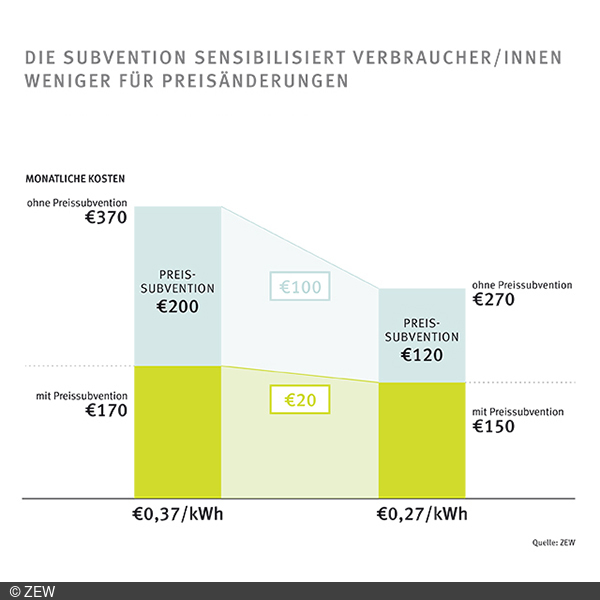“Plan May Impair Competition in Retail Market for Natural Gas”
ResearchAgainst the backdrop of skyrocketing gas prices, an expert commission appointed by the federal government proposed a two-stage relief plan in October 2022. The plan aims to keep natural gas affordable while also preventing supply shortages. The main element is a direct subsidy for gas-consuming households. In a ZEW policy brief, ZEW economists warn that price subsidies in the retail market for natural gas could impair competition between providers by reducing incentives for customers to search for cheaper service plans.
The commission’s plan is, on the one hand, to provide monetary aid from December 2022 onward and to adopt price subsidies starting from March 2023 until at least April 2024. However, this plan may have a negative competitive impact on the retail market for natural gas, as it might reduce customers’ incentives to switch providers. This is because households face significant inconvenience, e.g. in terms of search and transaction costs, when switching gas providers. Evidence of this dynamic can also be found in the German retail market for natural gas. Indeed, the perceived cost of searching and switching may be higher than the benefit of a cheaper contract, such that some customers simply prefer to stay with their current provider.
“Subsidies would reduce incentives to search out and switch to a cheaper provider,” says Atabek Atayev, PhD, a researcher in ZEW’s Market Design Unit, “because they reduce the savings that switching to a cheaper provider would bring.” If consumers do not search for a cheaper tariff and fail to compare natural gas suppliers, this would create additional room for providers to increase prices, the authors argue. The subsidy might even have a counterintuitive effect and make natural gas less affordable. “The costs that accrue to consumers when searching for and switching to a new provider must therefore be considered in the policy discussion. Policies that reduce switching costs or strengthen incentives to switch to cheaper providers should therefore be considered,” says Professor Adrian Hillenbrand, who also works in ZEW’s “Market Design” Unit.


